30 November 2021
Articles
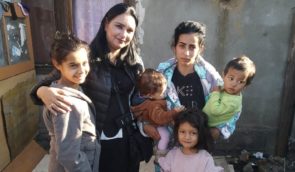
Social isolation, ignoring needs and multiple discrimination: what Ukrainian Roma face when fleeing war
ZMINA talked about these problems and the search for their solution with internally displaced Roma, Roma activists, as well as representatives of state institutions.
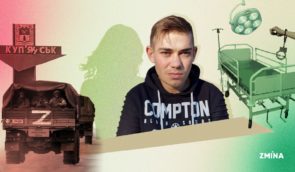
Dmytro and Olena from Kupyansk imprisoned for sending SBU pictures of Russian equipment: Couple tells how they waited for town liberation in captivity
During the occupation of Kupyansk, 30-year-old local resident Dmytro Hrechanyi was taking photos and recording videos of the movement of Russian military equipment and sending them along with geolocation marks to the Security Service of Ukraine (SBU). In early August, Dmytro and his girlfriend Olena [name is changed] were summoned to the police station for questioning: they were asked whether they cooperated with the Ukrainian special services. During the interrogation, the occupiers made a backup copy of the man's phone and found previously deleted pictures of military equipment. Both of them were imprisoned and held separately.
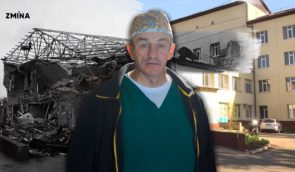
‘Do you need a corpse?’: reportage from Izyum hospital where hundreds of civilians, including those tortured almost to death by Russians, were saved during occupation
From the beginning of the full-scale invasion and until the liberation of Izyum from the Russian occupiers, the Izyum Central Hospital did not stop working even for a day. During the month of the heaviest shelling and bombing, seven people, including a plumber, an electrician, nurses, a traumatologist and a surgeon, provided care to hundreds of injured and sick. ZMINA tells how surgeries were performed and babies were born in the basement of the dilapidated hospital, as well as how two civilians tortured almost to death by the Russians were saved here.
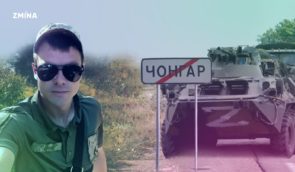
It’s not a problem for Russians to place Grad MLRS behind column of civilians and fire at Ukrainian positions: Story of veteran who escaped from occupied Kherson region
When Russia’s full-scale offensive began, Ruslan Zaredinov, a Crimean Tatar and ATO veteran, lived with his family in the urban-type village of Novooleksiyivka, Henichesk district, Kherson region, 25km from Chonhar. They were unable to evacuate due to the almost lightning-fast occupation of Kherson region. For five months, the 35-year-old man and his family lived in fear that the Russians would come for Ruslan as it happened to his friends and familiar veterans.
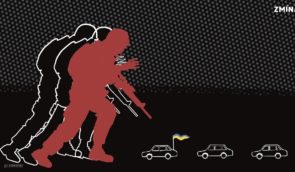
Road for survival. How Ukrainians from occupied South cross Vasylivka to break free
ZMINA talked to people, volunteers, and drivers who crossed the checkpoints in Vasylivka. In a few months, they turned into a separate world, subject to the changing mood of the occupiers – lawlessness reigns here, people have to spend nights by the road in tents and cars or neighboring villages, undergo humiliating inspections, and do not have access to healthcare. The physically and psychologically exhausting wait for departure has already claimed the lives of more than ten people.
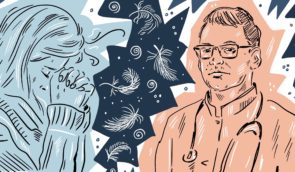
‘I recognized his cross and teeth, waited for DNA analysis results for another month’: Iryna from Chernihiv spent several weeks searching for her husband, killed in Russian strike on evacuation bus
The man could not be found for a long time. His relatives believed in a miracle, but the DNA analysis of the body found later confirmed that Yevhen had been killed between the villages of Kolychivka and Lukashivka. The Russian military struck the bus he was traveling in with an anti-tank guided missile. Iryna, the wife of the murdered man, told ZMINA about the weeks spent hoping that her husband had survived, searching for him, and the circumstances of the Russian war crime.
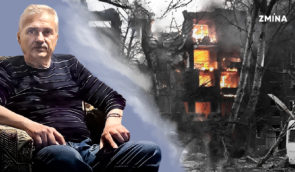
‘Spring was very cold. Or so it seems to us’: Story of man from Mariupol who survived under rubble of bombed-out building but lost his daughter
Yevhen Kostomanov, 59, lived and worked in Mariupol all his life. In March, the man lost his daughter – she was killed as a Russian aerial bomb hit their house – but he managed to survive. Yevhen told ZMINA about the month spent in Mariupol and how he, his wife, and seven-year-old grandson fled the city literally on foot.
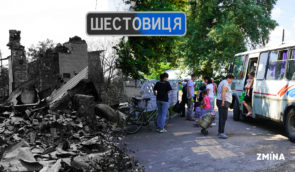
‘I came for a cross to put on grave of murdered girl and was hit in teeth with buttstock’: reportage on Russian war crimes in Chernihiv region’s village
At the end of June, a ZMINA journalist visited Shestovytsia together with the Educational Human Rights House Chernihiv experts who document the Russian war crimes of the Russians within Ukraine 5 AM Coalition. The article tells about life in the village during the occupation.

‘Occupiers went on a rampage on March 27-28: they shot men of all ages indiscriminately’ A teacher from Bucha tells how she lost her husband and nephew
Viktoria Klimtsova, 47, and her elderly mother lived in Bucha until it was liberated from the occupiers. However, at the beginning of April, they left for Cherkasy region as Viktoria had no reason to stay any longer. On March 28, her husband Oleh, who had refused to evacuate not wanting to give an inch of his native land to the Russians, was shot by the Russian military. The woman told ZMINA how her family, together with other residents of a five-story building on Sklozavodska Street, survived the occupation, how they supported the elderly and abandoned animals, and how the Russians massively murdered civilians, including her husband, in the last days of the occupation.
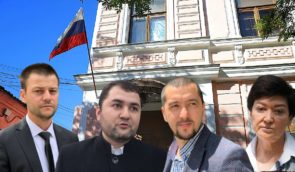
How independent lawyers are ‘silenced’ in Crimea
This article is about the charges brought against lawyers, the course of their trials, and the consequences these prosecutions will lead to
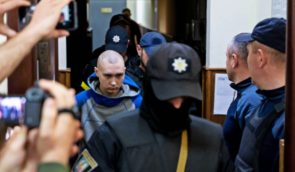
“The first trial against the russian soldier” as an indicator of the state justice system of Ukraine
The Office of the Prosecutor General (OPG) is constantly updating the statistics of documented violations, as well as bringing charges to the Russian military and government authorities in absentia. However, it is the cases of detained prisoners of war (POW) that have the best prospects in the context of bringing the perpetrators to justice at the domesting level.
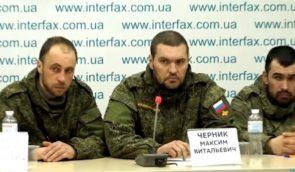
Revealing identity of Russian POWs: violation of their right to protection against ‘public curiosity’ or existence of ‘compelling public interest’?
In order to analyze the validity of a possible violation of the relevant provision of GC III, it is necessary to carry out a detailed analysis of the mentioned term "public curiosity", as well as its forms.
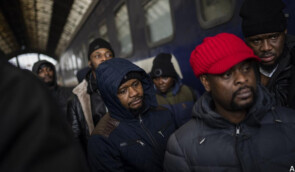
Evacuation of foreigners from Ukraine: is there really racial discrimination?
ZMINA spoke with Ukrainians and foreigners, who were the last to be evacuated, to find out if such discrimination was widespread, and to find out how to prevent it
Columns
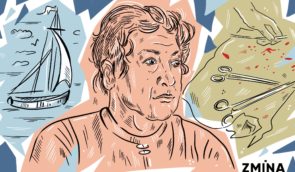
I sewed up vaginal tears with veterinary needle and capron for sails: Story of gynecologist from Izyum
I’ve been working as a doctor in the Izyum Maternity Hospital all my life. During the occupation, I was the only one of the eleven gynecologists in the town. Another female doctor, who did not leave, was killed during the aerial bombardment of a five-story building on Pershotravneva Street in early March. In April, a Russian with a call sign "Sherkhan", I think he is a FSB agent, was instructed to create "some kind of medicine" on our bank of the town. Then I was called to work at the clinic. I didn't want to go but I couldn't refuse. I understood that I was the only one, and people needed help.
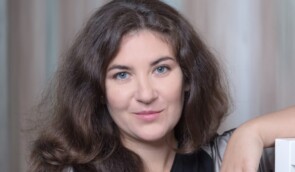
At the border with the war
“Iro, you must cross the border at any cost,” my best friend pleaded.
News
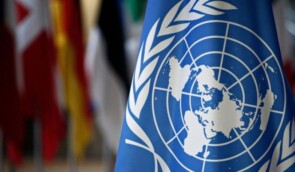
OHCHR documented widespread practices of torture and ill-treatment of Ukrainian civilian detainees by Russian armed forces
Of 38 released civilians (34 men, 4 women) interviewed by OHCHR in the mentioned period, 33 individuals reported having various forms of torture or ill-treatment inflicted on them while in detention, in order to force them to confess to having cooperated with the Ukrainian armed forces, to force them to cooperate with Russian armed forces or affiliated armed groups, or simply to intimidate them
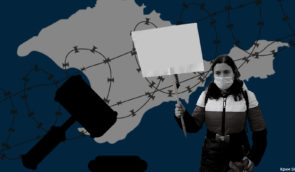
Russia has unduly restricted the right to freedom of opinion and expression in temporarily occupied Crimea since full-scale war against Ukraine – OHCHR
OHCHR has documented the prosecution of 89 individuals in temporarily occupied Crimea for “public actions directed at discrediting the armed forces of the Russian Federation” since the legislation was introduced in March 2022
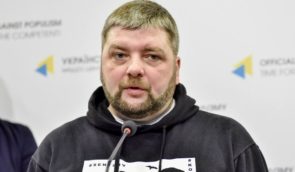
Human rights defender, journalist Maksym Butkevych gets captured, parents have no contact with him
Maksym Butkevych devoted about 20 years of his life to human rights activities. In particular, he was a member of the board of the Ukrainian representative office of Amnesty International and the public council under the Ministry of Internal Affairs of Ukraine
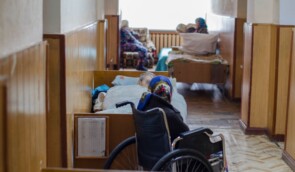
At least six thousand people remain in “internats” on the occupied territories
Human rights defenders call upon Ministries and other responsible bodies to assess the situation with internats in the war-affected areas and organize the evacuation of those that can be evacuated as soon as possible.

MFA of Ukraine has established an emergency hotline for foreign students wishing to leave Ukraine
The questionnaire has also been created for collecting basic information about students and their whereabouts in order to advise them on the means available for their departure




